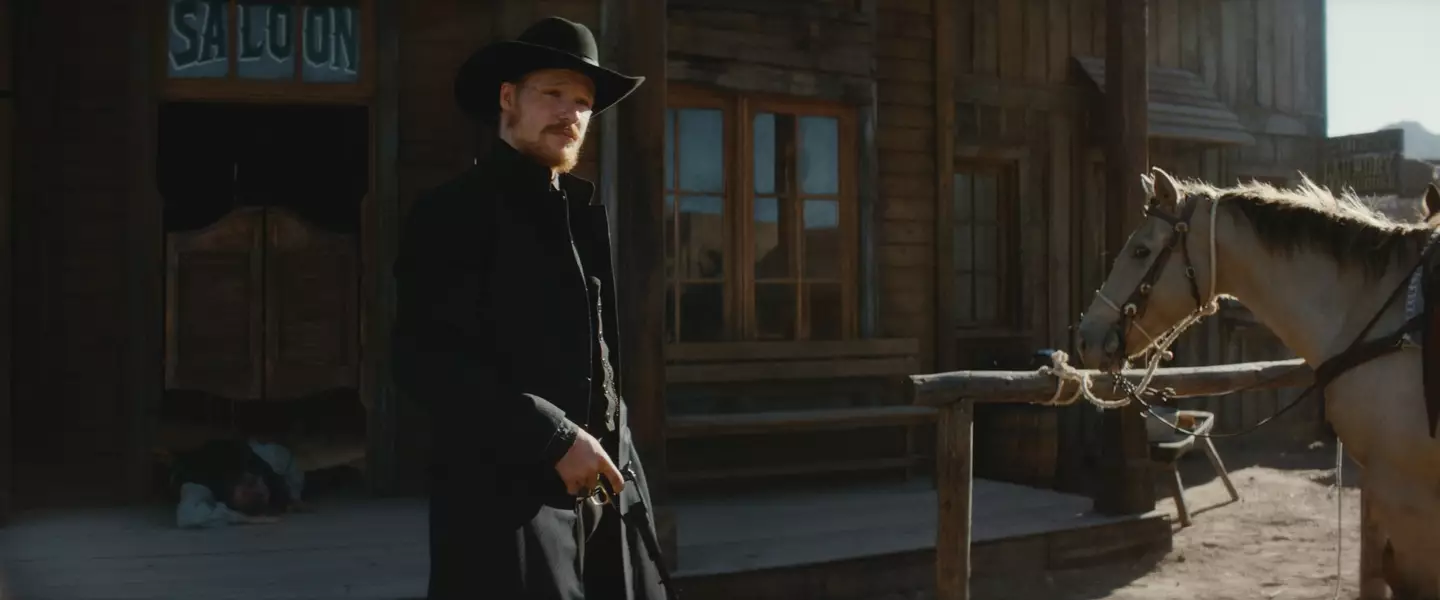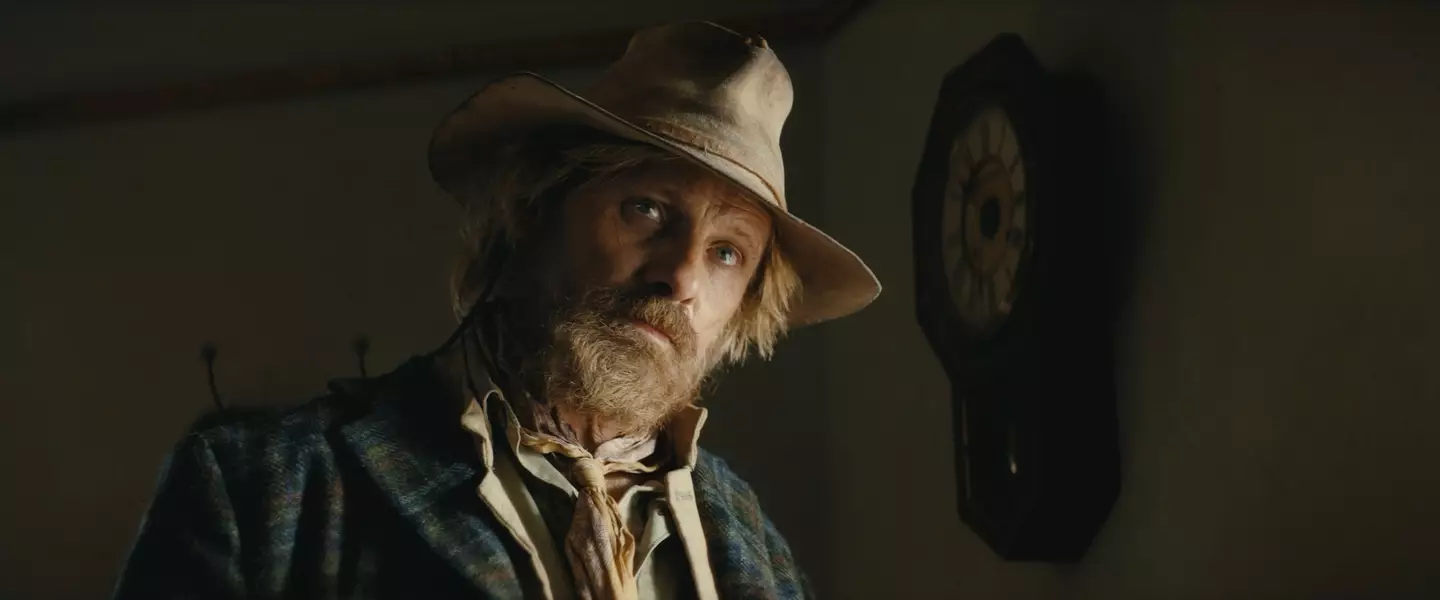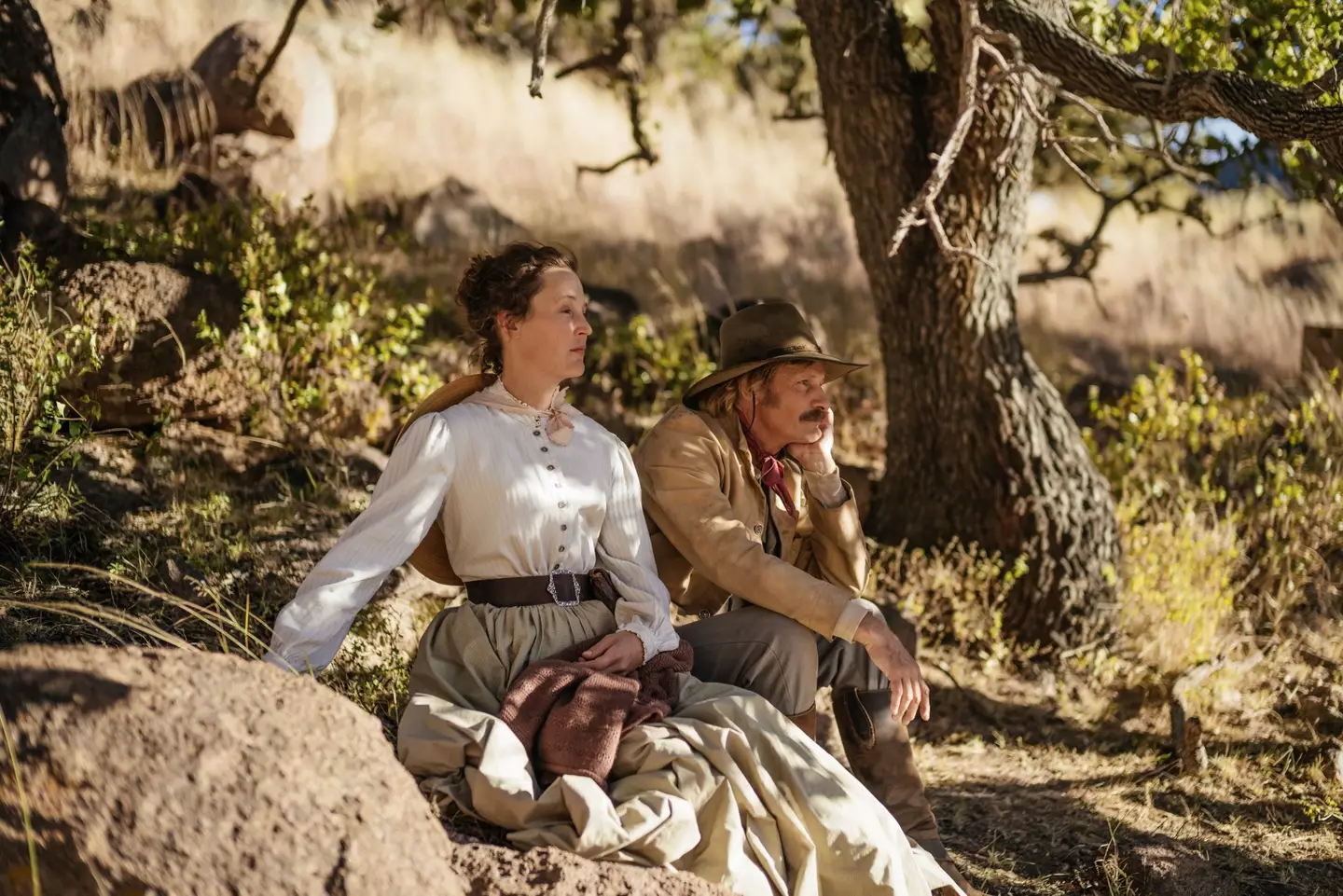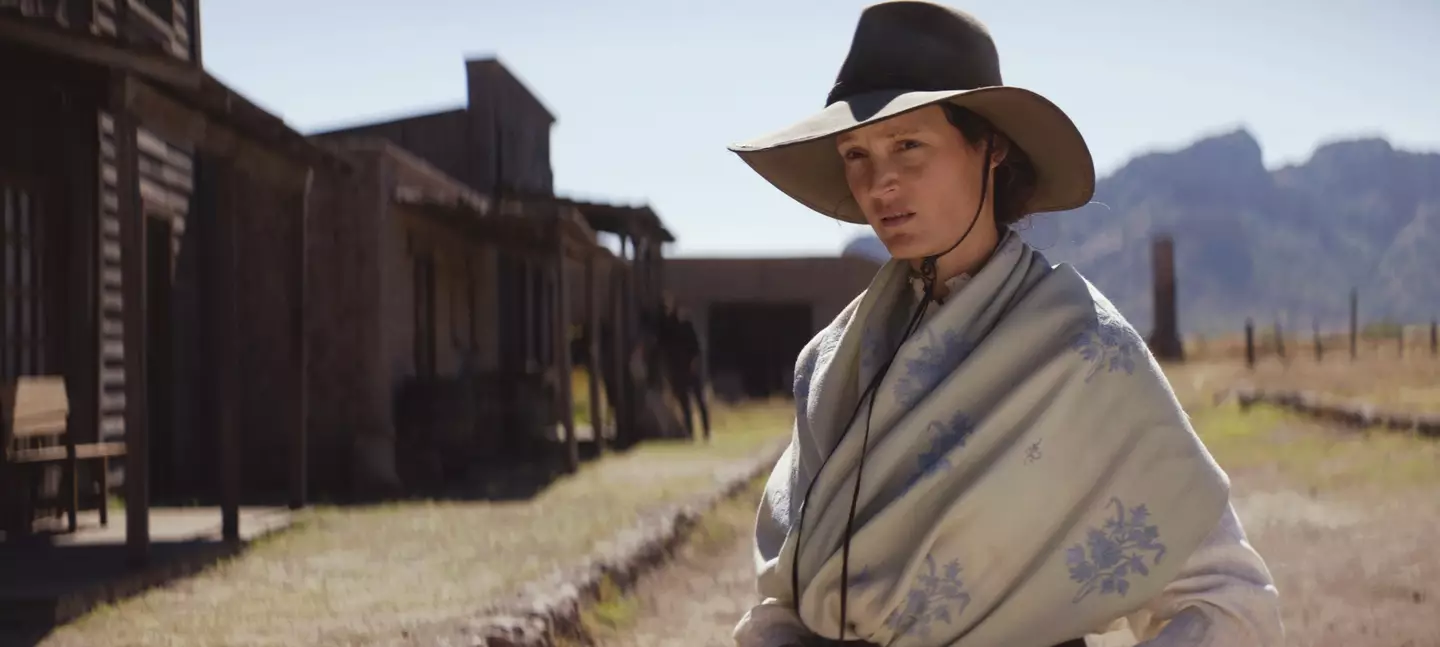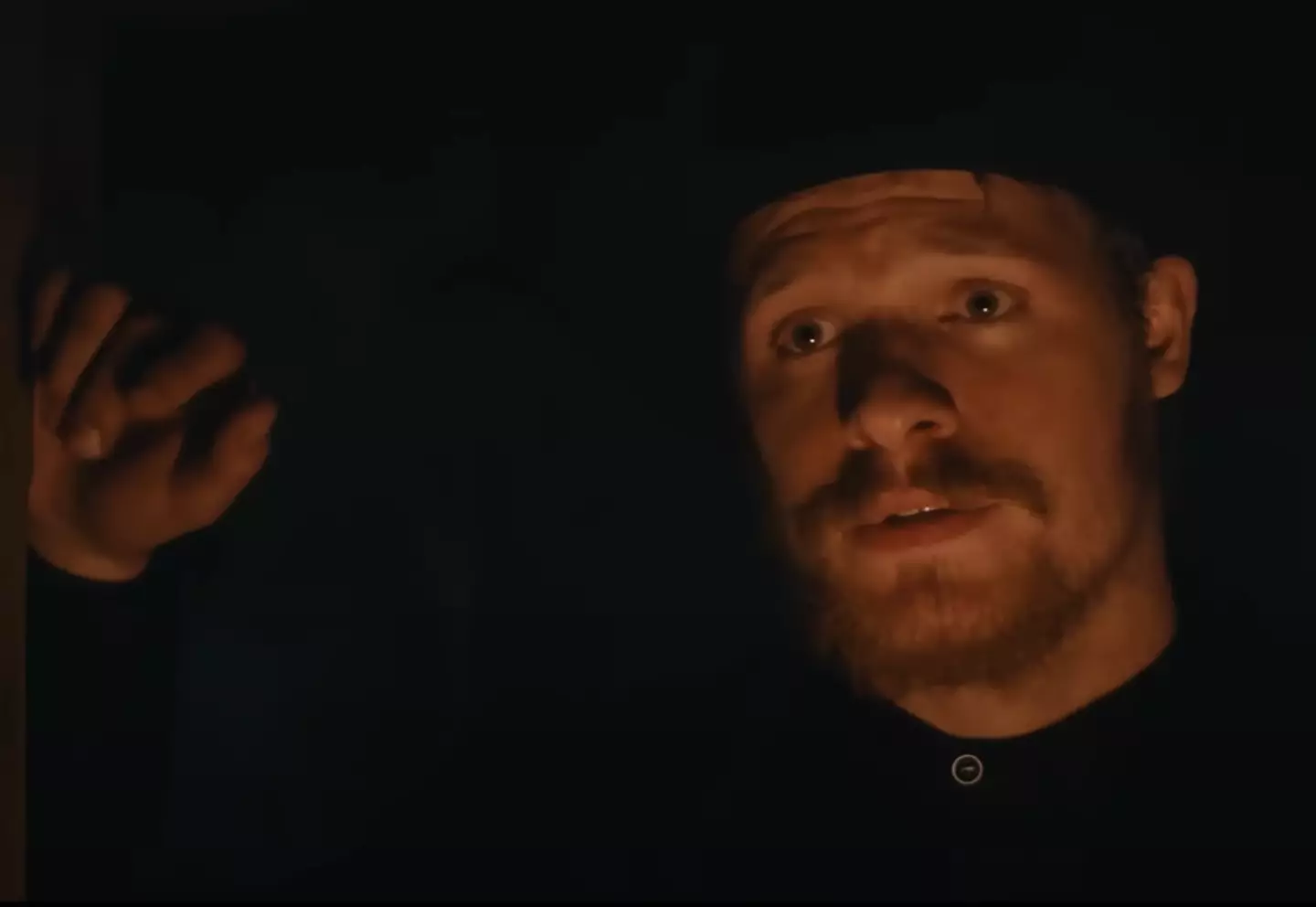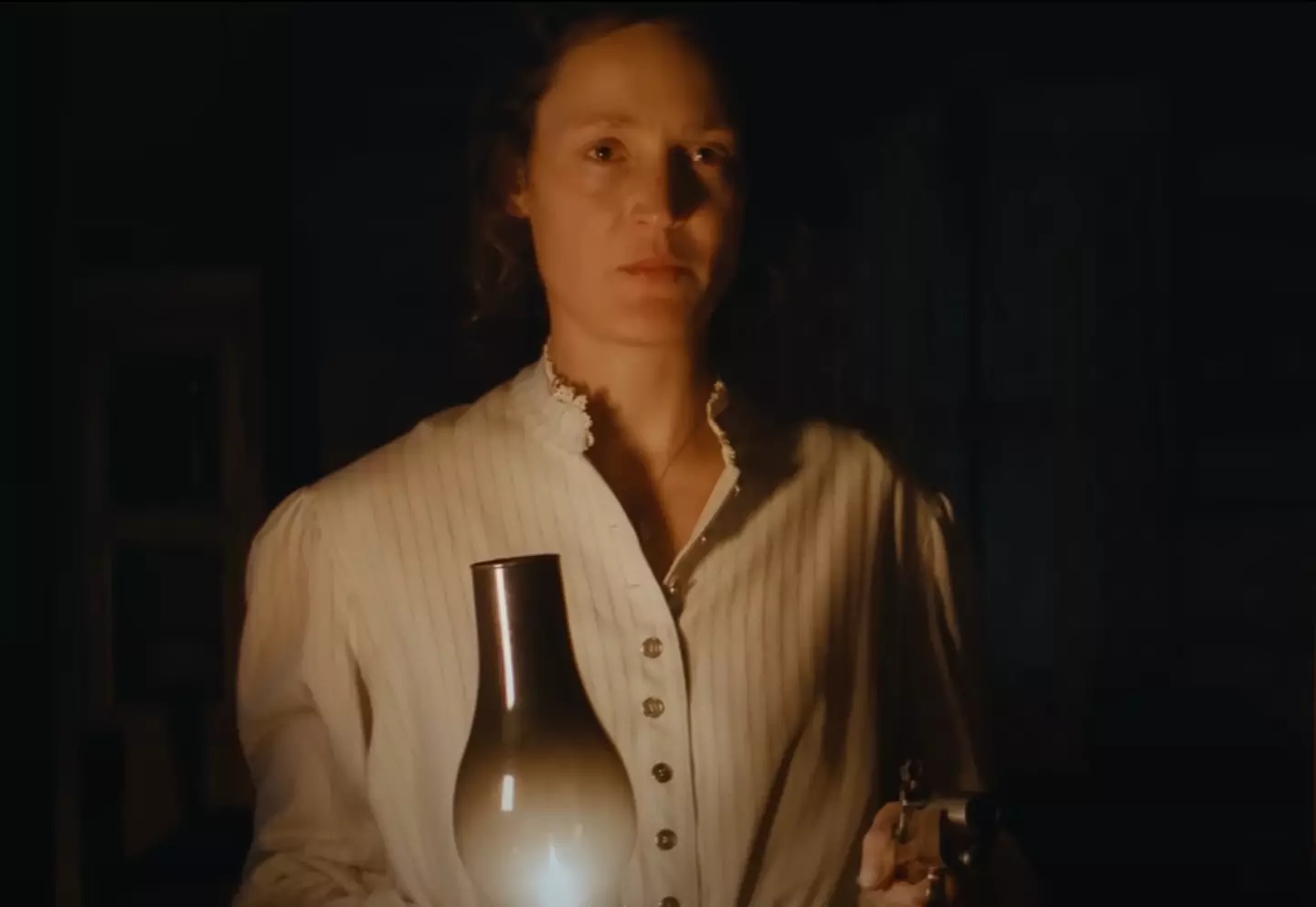The Dead Don't Hurt is a poetic, meticulous and moving second feature from Viggo Mortensen that lassos the Western genre and gives it a fresh feminist take.
Written, directed, and produced by Mortensen - oh and he also composed the score to the film - it's easy to sit here and question if there's nothing the man can't do.
However, despite the herds of Lord of the Rings fans swarming the streets around Glasgow Film Festival where I first saw Mortensen's latest movie, The Dead Don't Hurt is so much more than just any one man - even if that man is Aragorn himself. Prepare to cancel any plans you had tonight:
The Dead Don't Hurt - set in the 1860s in a frontier town in Nevada with Civil War on the horizon - captivates from the buzz of the first fly, drawing you in by pricking your ears before the screen's even lit up.
When the beautifully composed and cinematic shots arrive, the score and soundscape work with them in rousing harmony, resulting in a visually and audibly striking opening.
Anticipation only leaps further as we're thrust from a simmering stillness into a classic Western saloon setting, immediately introduced to the film's baddie, Weston Jeffries (Solly McLeod).
The Dead Don't Hurt is set in 1860s Nevada (Signature Entertainment) Over four minutes into the film and still, no one has spoken, the film holding unwavering power in the strength of its shots, soundscape and as-of-yet only non-verbal sounds of its performers - McLeod's small grunts of amusement and humming on top of his relaxed stature, unfazed facial expression and assured movements immediately establishing the ruthlessness of his character.
We're still yet to see Mortensen's face by six minutes in. Granted, he didn't cast himself in the movie in the first place, only stepping in to take on the character of Danish immigrant Holger Olsen when another actor dropped out. However, you can see how having him take more screen time could've benefitted the film, but it's clear that's not what The Dead Don't Hurt is about.
Mortensen may flex multiple creative muscles in the film, but he's not the leading character. Instead he plays more of a facilitator in telling the story of French Canadian flower seller Vivienne (Vicky Krieps), giving much space for Krieps and McLeod to shine - and shine they certainly do.
Viggo Mortensen plays the role of Holger Olsen (Signature Entertainment) Not only does the role of Vivienne stimulate a fresh and more feminist take on the classic Western, but Krieps' subtle yet also fiery embodiment of the protagonist, alongside Mortensen's nuanced writing, is nothing short of beautiful to watch.
Vivienne's character is presented as a real woman who experiences real emotions, unafraid to convey true anger and defy societal expectations.
Krieps' balancing of Vivienne's feistiness but also vulnerability leaves you unable to peel your eyes away from her and her performance is only complemented further when Vivienne meets Holger - Krieps and Mortensen navigating their characters' interactions like a dance.
Vicky Krieps stars as Vivienne Le Coudy (Signature Entertainment) Although, far from perfectly orchestrated routines, their two-step is bashful and tentative - despite the film being so visually cinematic, their relationship is not Hollywoodised, Krieps and Mortensen capturing the awkwardness of a first meeting masterfully.
They stumble over the steps of a blossoming romance and as they get to know another human's language, Vivienne's humor and sarcasm perfectly undercuts any slightly overly cheesy lines from Holger.
The awkward pauses, stilted speech and real interactions portray a grittier relationship which actually emulates the complexity of feeling multiple emotions at once.
A nibble of the lip from Krieps here and a sparkle in the eyes of Mortensen there and the connection between their characters is cemented.
The result is we actually root for Vivienne and Holger as we join them on their journey over the course of the film and when Holger goes off to war - Vivienne left alone - the film gains a simmering intensity.
Vivienne is left alone when Holger goes to fight (Signature Entertainment) You can hear Weston before you even see him appear on screen - the nefarious character is big boots to fill - but up-and-coming actor McLeod rises to the challenge, going beyond proving why he was one of Screen Daily's 2022 Stars of Tomorrow.
Like the rest of the film and characters, McLeod's performance doesn't rely on words to hold the weight of just how much of a villainous individual he plays. From his eyes lingering slightly too long to how he enthrallingly utilizes the power of breath, McLeod finesses the duplicity of the character, making clear Weston's intentions are not pure, but predatory.
There's one moment where McLeod's vocal delivery doesn't feel like it quite matches the intensity of the moment which stirs in Weston, lacking slight conviction, but his twinkling eyes and the enjoyment laced on his lips do well to brush over this. And if I'm only able to point out a single waver in the 24-year-old actor's entire performance playing such a complex character who actually makes your blood run cold - well, it says a lot.
The rest of McLeod's performance is flawless and rivals those of Mortensen and Krieps.
McLeod's performance matches, if not at times rivals, those of Mortensen and Krieps (Signature Entertainment) Despite the strength of McLeod and, of course, Mortensen's performances and the relevance of their characters, the film is honorable for not straying far from centring itself on Vivienne's experience and most importantly, never losing a sense of her strength.
A significant moment in the film is very poignant in how it bypasses showing a potentially triggering moment to some viewers - other film and TV series should take note.
The scene is one of the most powerful and moving in the film, cements the plot as being told through a more feminist lens and defies relying on shock factor, instead approaching the moment with care, sensitivity and focusing on what truly matters - Vivienne.
However, not long after this scene, the film's pace slows to a trot when it really needed to gallop.
Krieps leads the film (Signature Entertainment) The non-linear narrative and tit-bitting of revelation only keeps viewers on their toes for so long.
Poignant themes continue to poke through, tugging at heartstrings: One man’s grappling for purpose and his role in society, what it means to be 'a man', society's role and expectations of women, fatherhood and what constitutes a family.
Alas, where the plot needs to pick up, it slows down, feeling slightly self-indulgent in its contemplative nature - there are various points where I felt the film could've just ended there.
A moment towards the end spurs it on more, but by that point, it's already lost much intensity and pace. Perhaps being more ferociously intercut with the other scenes and paired with a more frantic score could've helped. Or for editors to have channeled more of Weston’s ruthlessness when it came to editing the final cut.
However, the beauty of what's not verbally said, the strength of the score, soundscape, construction of the shots, acting and just how real it all felt - it's hard to be too critical of the film feeling slightly drawn out.
Overall, The Dead Don't Hurt is a visually striking, nuanced feminist-take on a Western featuring outstanding performances and a standout soundtrack, it just could've done with a bit of a tighter grip on the lasso.
★★★★☆
The Dead Don't Hurt is currently showing in UK cinemas.
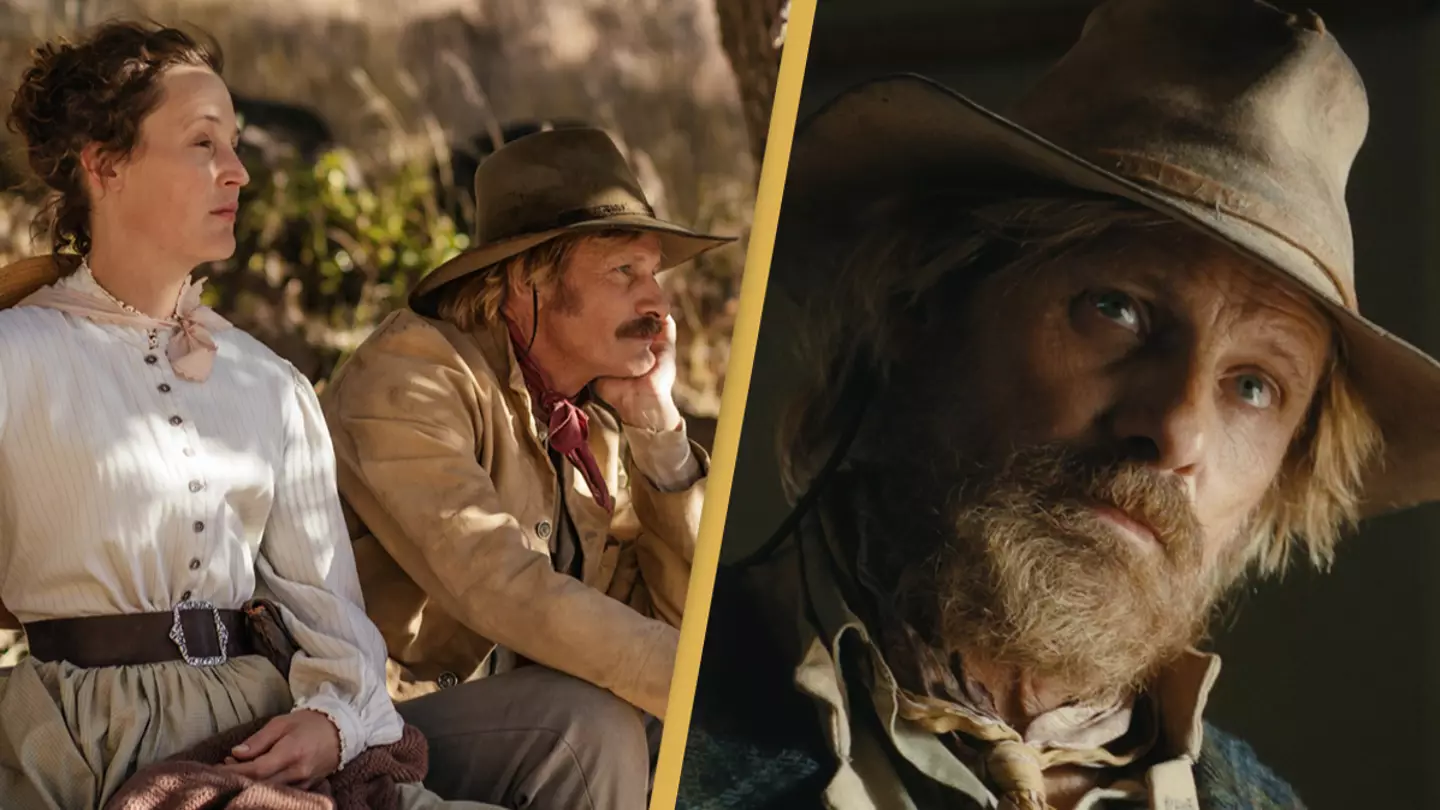
 Poppy Bilderbeck
Poppy Bilderbeck